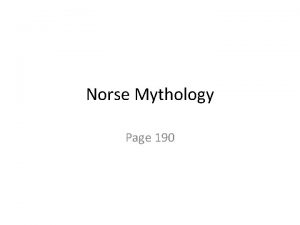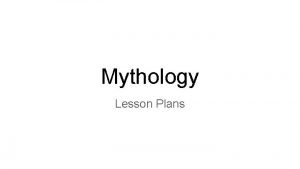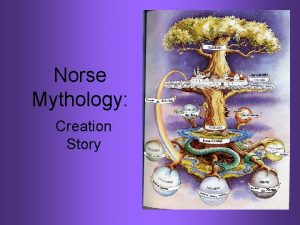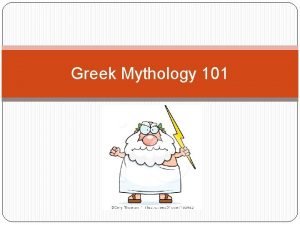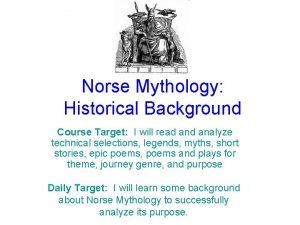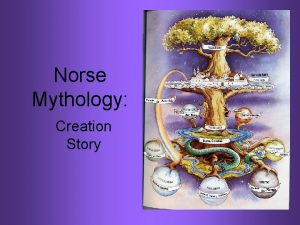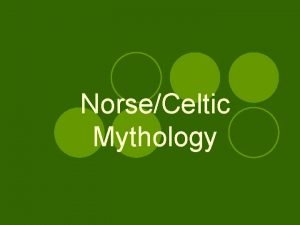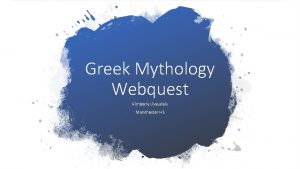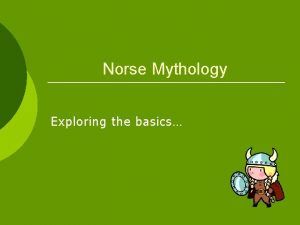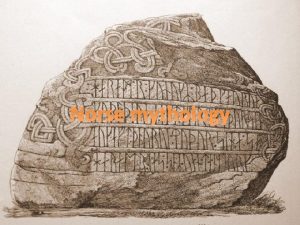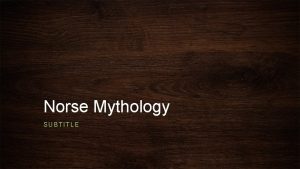Norse Mythology Norse mythology is the overall term








- Slides: 8

Norse Mythology

Norse mythology is the overall term for the myths, legends and beliefs about supernatural beings of Norse pagans. It prior to the Early Middle Ages, and passed into Nordic folklore, with some aspects surviving to the modern day.

Yggdrasil In Norse mythology there are 'nine worlds' (Níu Heimar in Old Norse), each joined to the other via the "World Tree" Yggdrasil

Nine world’s: Ásgarðr, world of the Æsir. Vanaheimr, world of the Vanir. Álfheimr, world of the Álfar (Elves). Miðgarðr, world of humans. Jötunheimr, world of the Jötnar (Giants). Niðavellir, world of the Dvergar (Dwarfs). Múspell', world of fire and the Fire Jötnar Niflhel, world of ice and mist Hel, world of the inglorious dead

Pantheon In the German-Scandinavian mythology, the god was regarded as a senior Adin. Besides Odin, the twelve gods: Thor, Baldur, Tyr, Heimdall, Bragi, Hjord, Vidar, Vali, Ull, Njord, Freyr, Loki. The main female characters are Norse mythology - Frigg (Odin's wife in charge of fate), Freya (the goddess of love), Idun (keeper of gold rejuvenating apples), Seth (wife of the god of thunder Thor, presumably related to fertility), etc.

Destruction of the world Ragnarök refers to a series of major events, including a great battle foretold to ultimately result in the death of a number of major figures (including the gods Odin, Thor, Freyr, Heimdall, and the jötunn Loki), the occurrence of various natural disasters, and the subsequent submersion of the world in water. Afterwards, the world resurfaces anew and fertile, the surviving gods meet, and the world is repopulated by two human survivors

Most of the English weekday names derived from old Germanic names of the gods Tuesday — Tyr’s (Tiw’s) day Wednesday — Odin’s (Woden’s) day Thursday — Thor’s day Friday — Frigg’s или Freya’s day Sunday — Sun’s day Monday — Moon’s day

The End By Dmitriy Alekseev
